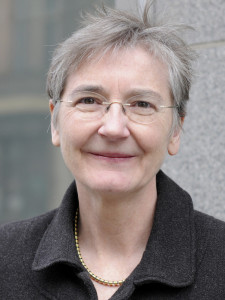
Despite big differences over economic policy, Europe’s two most important leaders need each other more than ever before.
Tradition has it that the first visits abroad by a new French president and by a new German chancellor are to each other’s country. This is more than a ritual for Europe’s two most important leaders. It symbolizes one of the great and extraordinary successes of the post-1945 period. The reconciliation between France and Germany, after so many centuries of rivalry and war, is one of the remarkable achievements of the European Union. It is now taken for granted that France and Germany will always continue to provide the anchor for European stability.
Recent terrorist attacks in France, Germany, and other EU countries have convinced Paris and Berlin of the need for them especially, and Europe more widely, to work more closely together on security, defense, and foreign policies. This is more important than ever given the unpredictability of U.S. President Donald Trump’s administration.
Indeed, the election of Emmanuel Macron as France’s new president couldn’t have come at a better time for the EU. His victory on May 7 has given the bloc a much-needed injection of confidence at a time when the EU’s institutions seem increasingly paralyzed. It is the relationship between Macron and German Chancellor Angela Merkel—and not the EU institutions—that will shape France’s and Europe’s futures. What happens between Paris and Berlin matters far more than the institutions’ obsession with processes.
That is why Macron’s imminent visit to Berlin matters. It’s not going to be plain sailing. The two leaders’ views on economic policy divide them—and fundamentally.
Macron’s domestic agenda is clear. He wants France to regain its competitive edge. This means reforming the country’s labor laws, reducing the role and cost of the state, and decreasing unemployment. Without a strong French economy, the Franco-German axis, which over the years has become unbalanced precisely because of France’s economic weakness and Germany’s strength, cannot move forward. Merkel and Germany’s finance minister, Wolfgang Schäuble, are now hoping that Macron will deliver.
But the young French president-elect wants and needs support from Berlin. And his team probably believes he deserves it, particularly after his election campaign was pro-European in a way that disarmed populist movements—for the moment—and showed that Europe can be a winning card. Berlin should reward him. But Macron can’t be so sure about that.
French and German leaders agree that Europe needs to integrate further. One of Macron’s main ideas is for the EU to have a eurozone finance minister as a logical continuation of economic and monetary union. It’s hard to see Berlin agreeing to that. The thought of such a minister overseeing a substantial budget and aspects of taxation in Brussels is not particularly popular in the Finance Ministry in Berlin. Besides, it would demand a change to the EU treaties, a move that would be very difficult because it would require the agreement of all member states.
More unpopular for Merkel and Schäuble is that Macron wants to introduce Eurobonds, which would in practice jointly guarantee public debt in eurozone countries. That is something that Merkel adamantly opposes. Apart from the fact that Germany would have to shoulder the debt of other countries, the incentive for those states to put their finances in order would weaken, if not disappear. Hours after his victory, Merkel said she wanted to help France but that “German support cannot replace French policymaking. . . . I don’t see why – as a priority – we should change our policy.”
Merkel’s coalition partners, the Social Democrats, who despite their brash new leader, Martin Schulz, were hammered in regional elections in Saarlandand Schleswig-Holstein earlier in 2017, see things differently. Sigmar Gabriel, Germany’s Social Democratic foreign minister, called for an end to Merkel’s “financial policy orthodoxy.” Referring to Macron, he added, “Whoever launches reforms should not at the same time be forced into strict fiscal austerity.”
Tell that to the Greeks, Irish, Portuguese, and Spaniards. These once heavily indebted eurozone countries, which had high budget deficits, introduced tough austerity measures and overhauled their banking sectors and public sectors in return for bailouts. Each of their economies is now returning to growth, but the price to pay has been high, particularly for pensioners and the less well-off. They would surely resent France being spared the pain of reform and Berlin making an exception for France.
Merkel may shift her ground, but not soon. Her Christian Democrats face an important election on May 14 in North Rhine-Westphalia, Germany’s most populous region, which is currently governed by a coalition led by the Social Democrats. Then comes the federal election that will take place in September.
Between now and then, it is hard to see Merkel and Schäuble changing course over economic policy. But it is also hard to see Merkel not rewarding Macron in some way for standing up for Europe. He’s going to need something besides a red carpet when he visits Berlin.
Judy Dempsey is a nonresident senior fellow at Carnegie Europe and editor in chief of Strategic Europe. She is also a member of United Europe.
Here’s the link to the original article, published first by Strategic Europe.


